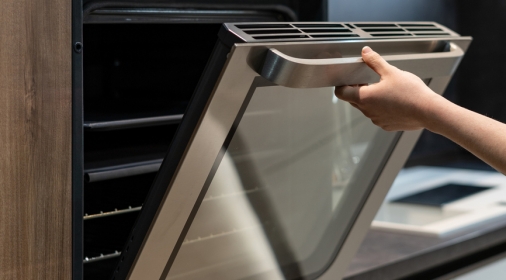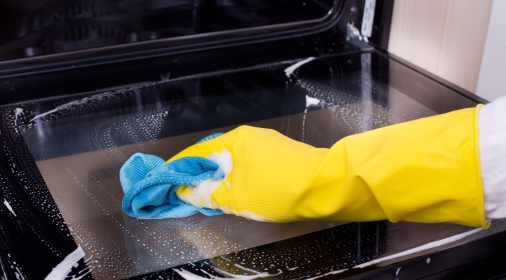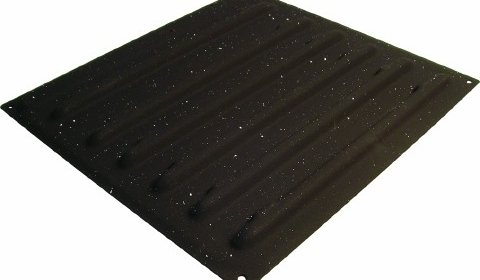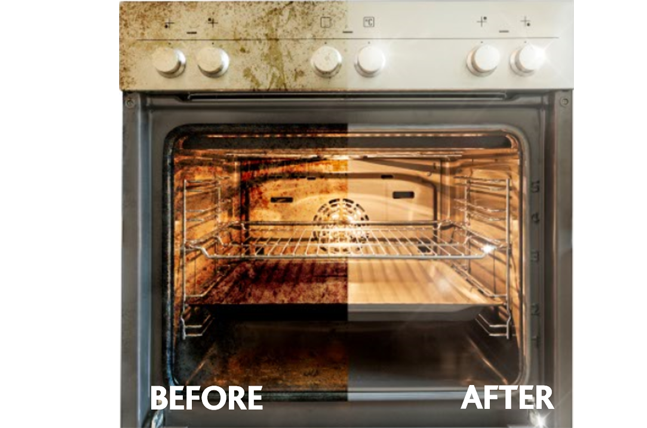You may be considering buying a self-cleaning oven, thinking it will be the answer all your prayers. Afterall, who wants to spend hours cleaning their oven? However, there are some factors to consider with self-cleaning ovens. Below we compare the difference between a self-cleaning oven and a professional oven cleaning service.
Self-Cleaning Ovens
Surprisingly self-cleaning ovens have been around since the 1960s. However, there is still evidently some confusion on how they work and if they are worth it. Generally self-cleaning ovens do a good job of cleaning the interior of the oven. Removing the build-up of grease and grime, that could take hours to clean by hand. Most self-cleaning ovens are either Pyrolytic vs Catalytic, find out the differences between the two here.
Pros of Self-Cleaning Ovens
- Convenience – Possibly the biggest benefit of self-cleaning ovens is they offer an alternative to hours of manual scrubbing.
- No Harsh Chemicals – Self-cleaning ovens eliminate the need for harmful cleaning chemicals. Most self-cleaning ovens only require a wipe over with a damp cloth to remove remaining debris and lemon can be used for freshness.
- Energy – Self-cleaning ovens are fitted with extra-heavy insulation, which allows the oven to reach extreme temperatures when cleaning. This means the insulation also helps to keep in heat in while cooking, therefore reducing the amount of energy used. This can result in significant energy savings during the oven’s lifetime.
- Tip: Run the self-cleaning function straight after cooking, to make use of the heat that has already built up.
Cons of Self-Cleaning Ovens
- High Temperatures – Some self-cleaning ovens can reach extreme temperatures of 400 degrees. This means that the oven can become very hot to the touch. For more information on the dangers of self-cleaning ovens, have a read of our blog here.
- Smoke and Odours – The majority of self-cleaning ovens use the pyrolytic method. This is where the oven burns the food grime to ash. However, during the process, some ovens may produce smoke and unpleasant odours. Generally, the dirtier the oven, the more likely smoke and odours will occur.
- Lack of Professional Finish – Unfortunately with most self-cleaning ovens, a degree of manual work is still required. Manual cleaning is required to remove the grime that has been burnt off by the cleaning process. Self-cleaning ovens also cannot clean the door frame, seal and door edges. However, the door frame, seal, door edges and glass are usually included in a professional oven cleaning service.
Professional Deep Oven Cleaning
Professional oven cleaning is when a fully-trained Ovenclean specialist comes into your home and completes a thorough deep clean on your oven. This includes everything from the oven racks to door glass. So how does professional oven cleaning compare to a self-cleaning oven.
Professional Oven Cleaning Quote
- Convenience – A professional oven clean can be completed in a matter of hours and appliances are safe for use immediately. Ovenclean specialists will leave the kitchen, how they found it, causing minimal disturbance to your home. All removable parts are soaked and cleaned in a specialist bath outside your home. Which means there is no mess and no fuss.
- Safety First – Ovenclean specialists use an innovative, no-added caustic system. So, your kitchen is safe, hygienic and free from nasty fumes. Perfect for homes with young children and pets.
- Professionals – Ovenclean specialists are the professionals. A self-cleaning oven cannot produce the same cleaning standards as an experienced oven cleaning professional can.
- High Standards – The Ovenclean process removes all grease, fat and burnt on grime, whilst fully protecting the enamel surface of the appliance.
- No High Temperatures – With a professional oven clean, there is no need for your oven to reach extreme temperatures, creating a safer environment.
Now you have more information on the differences between self-cleaning ovens and professional oven cleaning, including the advantages and disadvantages of both methods. You can now decide which is best for your home. If you would like to receive a free no-obligation quote from your local Ovenclean specialist, please click the button below.





